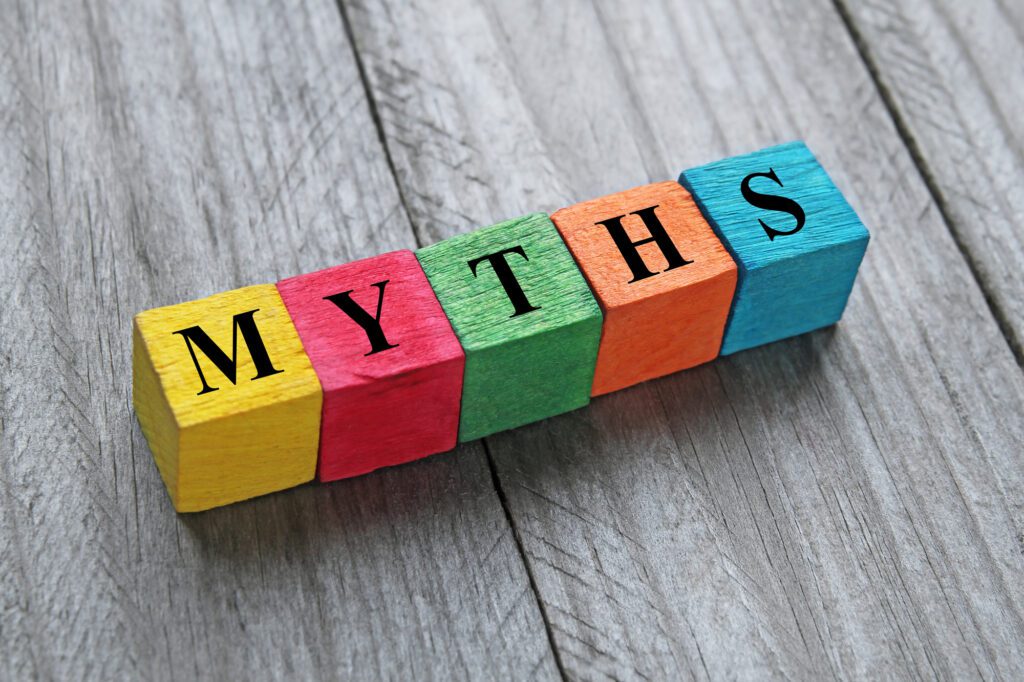
Five diet myths debunked

1. Natural sugar is better than refined sugar
As far as the body is concerned, sugar is sugar is sugar. So no matter whether you are consuming the much aligned white stuff or organic, raw, natural sugar, once it’s in your body it all has the same effect. While it is true that natural sugars such as raw honey or pure maple syrup contain minerals that aren’t in refined sugars, you would need to eat so much of them to get the benefit of these minerals, that realistically there’s no real health benefits to be had. At the end of the day, our body deals with all types of sugar in the same way, regardless of where it’s come from. So don’t be fooled into thinking that natural sugars are healthier or that they don’t count towards your daily sugar intake, especially if you are watching blood sugar levels or are pre- or diabetic.
2. Fat-free is always healthier
Many people avoid fat for health reasons, others to manage weight. However we do need to consume some fat in our diet as fats are essential for the health of our cells, for the production of steroid hormones, such as oestrogen, progesterone and androgens, and are needed for us to be able to absorb fat-soluble vitamins from our food. These are vitamins, A, D, E and K. And while fats are high in energy (calories) with every gram of fat containing 9 kcals, they are also very satiating, meaning they help keep you feeling full, so you are less likely to get hungry. Eating some healthy fats with your meal can also help to stabilise blood sugar levels. Fats also provide a longer-term energy source than carbohydrates, making them a useful fuel source for endurance activities.
Fats are either saturated or unsaturated, as determined by their chemical structure, with unsaturated fats further broken down to monounsaturated (MUFA) or polyunsaturated (PUFA) fats. While we don’t view saturated fat in quite the same negative way that we used to, these fats are still best consumed in small quantities (eg from coconut oil and butter). You may have heard of essential fatty acids (EFAs), which include omega-3 (found in oily fish, seaweed, nuts and seeds) and omega-6 fats (found in vegetable oils and red meat), which are types of PUFA. Essential means our bodies are unable to make them, so we need to consume them from our diet. EFAs, and omega-3s in particular, play an important role in supporting the health of our brain, heart, eyes, and can help to minimise inflammation. If you are avoiding fat completely, then you may be missing out on this important nutrient.
So if you’re choosing only fat-free products, you may be missing a trick and could actually be consuming a whole lot of processed foods. Removing fat from food is a form of processing, and it is generally recommend to avoid processed foods. But beyond that, removing fat usually means replacing it with sugars and other additives to make it taste good.
The best kind of low-fat foods to eat? Those naturally low in fat such as fruit, vegetables, whole grains and lean meats … no processing required!
3. Fresh is better than frozen
With the cost of living being as it is, this is definitely a good myth to dispel! Frozen food is often cheaper, helps reduce food waste, and can make your diet healthier as you have a more diverse range of ingredients to hand than you may do if relying on fresh produce. And some fruit and vegetables even contain higher nutrients when frozen, as freezing retains nutrients that may otherwise be lost on the shelf. Remember steaming is generally better than boiling vegetables when cooking to minimise nutrient loss. Regardless of fresh or frozen, the important thing is to eat your veg!
4. All plant-based foods are healthy
There is little doubt following a plant-based diet, ie one that is rich in plants but can also include small amounts of animal products, has many health benefits. But as the plant-based movement gains popularity so does the market for processed plant-based foods, ready meals and meat substitutes that are full of nasty additives. Stick to foods that are naturally plant based (vegetables, fruit, whole grains, nuts and seeds, legumes) to enjoy a healthy, balanced diet, and leave the processed plant-based options behind.
5. You should avoid carbohydrates
Carbohydrates are an important part of a balanced diet, being one of the three macronutrients we need to survive. They provide a vital source of vitamins and minerals and are an important source of energy for the brain and body. Restricting carbohydrates can make it difficult to meet your body’s fibre needs, which can have a negative effect on gut bacteria and blood sugar levels, and overall health. Not all carbohydrates are equal, however, so it’s important to choose carbohydrates from whole grains and starchy vegetables, which release energy more slowly, over refined carbohydrates (eg cakes, biscuits, processed food) that release their energy much quicker and are typically far less nutritious. So it’s not about avoiding all carbohydrates, it’s about choosing the right type of carbohydrate, and the quantity, which can vary depending on your activity levels and weight goals.
